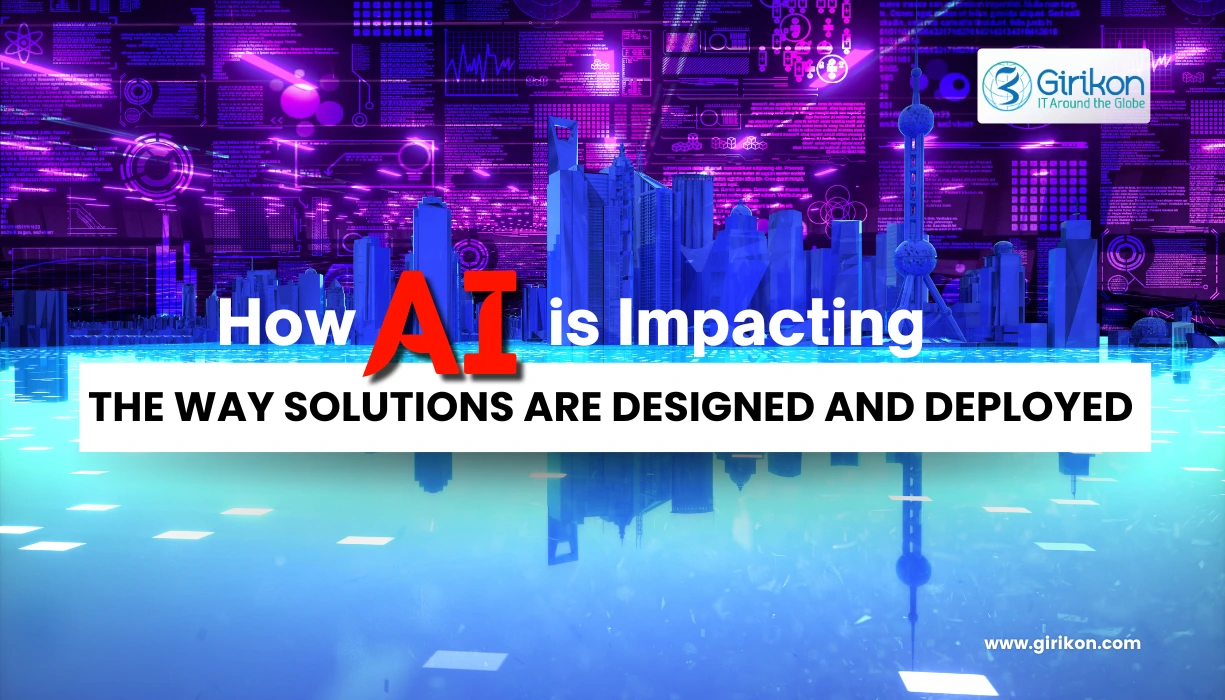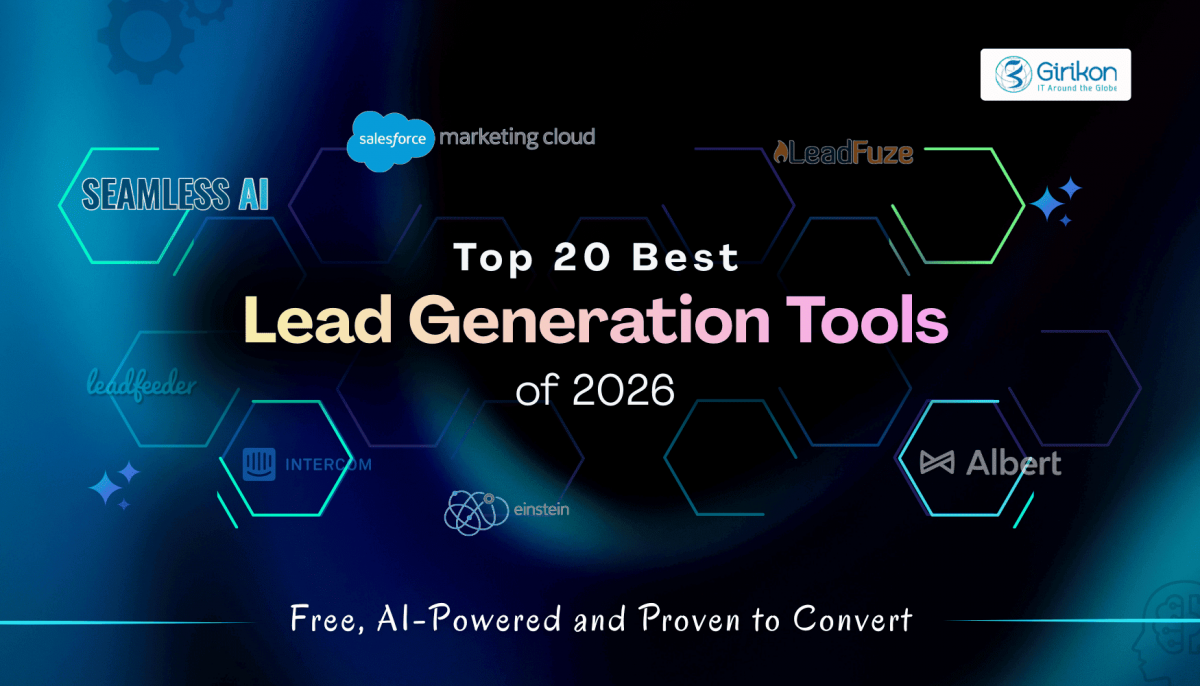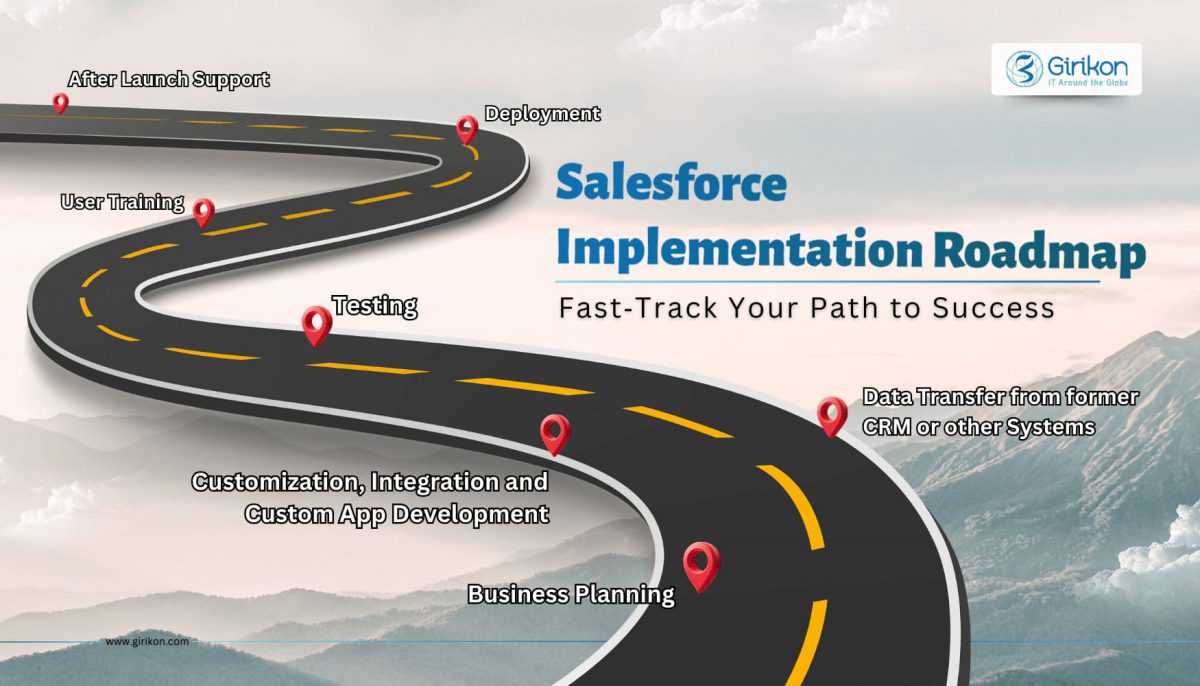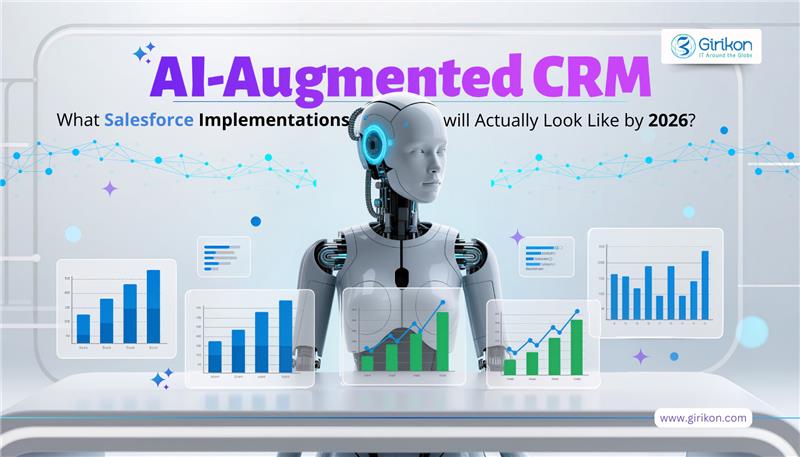Our Blogs
It is obvious that artificial intelligence (AI) will transform the way solutions are designed. It is time to acknowledge that there is a fundamental change in how one needs to approach architecture. In the past, solutions were developed based on an algorithmic understanding of the problem, guaranteeing consistency in output with the same input. For example, in a CRM system with an account segmentation process, the conventional approach involved defining fields on the account and applying business logic for segmentation, driving other automation in the system.

However, in the era of artificial intelligence, models are created using a lot of data, leading to the creation of predictive models. Large language models (LLMs) change the way solutions are designed because they can handle more intricate personalized segmentation and consider a much larger range of data.
In order to better comprehend this, let's examine how AI is affecting solution design and delivery by closely examining the following topics.
Transforming the user experience
The transformative impact of artificial intelligence (AI), especially with regard to generation AI, is responsible for its current surge in popularity. Users can interact with technology using natural language for the first time. This represents a significant paradigm shift since it can now receive requests that fully and accurately match the user's intentions.
Moving to a Natural Language Processing (NLP) experience
Platforms are starting to focus more on NLP (Natural Language Processing) and less on if-then-else scenarios. The user is spared from having to search through numerous fields. Rather, the user receives an English response to their questions. This streamlines onboarding, increasing its speed and effectiveness without requiring agents to undergo in-depth training.
Increased productivity
AI empowers businesses to do more with fewer customizations translating to increased work efficiency.
The challenges of AI
While AI provides benefits, it also presents new challenges, such as:
- Having to account for a wider range of data in a probabilistic context.
- Performance guarantees are not identical, therefore factors like error management and observability must be re-evaluated.
- Without direct insight into how language models work, troubleshooting becomes more challenging.
- Problems like hallucinations, where the model will make things up – while there are solutions to address these problems, none are completely dependable.
- Prompts can introduce biases and additional security problems into a language model.
In an era where data privacy and trust are paramount, it is critical to create approaches for error management and improving the predictability of AI output in order to secure data security and privacy.
How is AI impacting engagement with professional services companies?
Even while processes have evolved and agility has increased over the past couple of decades, the traditional approach to delivery has stayed mostly unchanged.
This is how AI can change the engagement model with professional services firms:
Fast-track every stage of the delivery process.
The kinds of jobs that people can have and the kinds of skills they need will change dramatically as a result of NLP. If the volume of data generated by the sales team during the discovery phase can be summarized into a handover, it would save the project team and the customer a lot of time, accelerating all the stages of a typical delivery and making the process more efficient.
Maximize human potential
Artificial Intelligence provides the capacity to generate commodities for manual labor, particularly in professional services engagements. When carrying out an engagement, be it a Salesforce delivery, AI powered salesforce consulting, or anything else, a lot of manual tasks are frequently required to keep everything organized and in sync. With the help of AI, we can do away with that and make it a commodity, freeing up the human brain to focus on more difficult jobs and providing customers with greater commercial value.
For intricate CPQ (Configure, Price, Quote) projects, for instance, the user doesn't have to worry about billable hours for manual tasks—instead, they can concentrate on creating appropriate pricing policies and working with customers.
Can AI solve everything?
AI is pervasive and has an impact on professional services and architecture. Can it resolve every issue? Or is it just a fantastical idea with dubious practical application?
Let's examine this in more detail.
AI as a co-pilot
People have very high expectations of AI. Consequently, there is always a concern about losing jobs to AI.
But the reality is that AI helps people do tasks more quickly and easily, freeing up their time to pursue other interests.
Approach AI with an open and curious mindset
The revolutionary journey of AI has only just begun, and given the hype and its ongoing progress, it's critical to recognize its potential. Instead of seeing AI as a closed subject, but rather as a new frontier, one should approach it with curiosity and a commitment to improvement.
The energy impact of AI
It is important to pay attention to how AI affects energy. The extensive usage of AI may result in a considerable carbon footprint. Globally, addressing this challenge—which includes data management, data security, and environmental aspects—is imperative, meaning that solutions must be found as quickly as possible.
Language generation is no longer just a human ability
Natural language generation capability is no longer restricted to humans.
Up until recently, language was thought to be an ability unique to humans. Large language models can now mimic complex ideas and emotion-based communication that were previously thought to be specific to humans, even though they don't fully comprehend the material they generate. This is a fundamentally important change that calls into question the idea that language production is exclusively a human ability.
AI is ultimately a tool that requires a human at the helm
Even with its advances, artificial intelligence still needs clear guidance on our goals. No matter how complicated the task or its execution, human intelligence, and minds are essential for directing AI to get the intended results. Even though AI can expedite activities and increase productivity, in the end, it is still a tool that needs human guidance.
How does AI impact innovation?
Problem-solving capabilities
The evolution of AI signifies a shift in problem-solving capabilities. AI can be utilized in the context of the current technology landscape, by identifying the low-hanging fruits, and determining what can easily be delivered to end-users.
Simplifies intent-based testing
Important side discussions are frequently overlooked in team communication, especially when testing is involved. Intent-based testing, which can transform the testing process by guaranteeing that user intent and requirements continuously guide testing efforts, may be made possible by AI's capacity to retain a continuous grasp of intent.
AI as a solution to persistent issues
AI provides a set of tools to solve enduring issues. Artificial Intelligence (AI) has the potential to revolutionize the way that chronic problems in numerous disciplines, like sales pipeline predictability and routing, are approached and improve work efficiency.
How does AI impact DevOps?
Depth vs. breadth in knowledge
When it really gets to understanding and establishing value, it's about depth. In some sectors of the economy, like healthcare, there are generations of expertise where people are retiring after 40 or 50 years of experience. The difficulty lies in archiving that data, incorporating it into a domain-specific large language model (LLM), and utilizing centuries' worth of healthcare-related knowledge at our disposal—all the while being mindful of whether information from the previous century or earlier is still relevant today.
Democratizing DevOps
Within the DevOps process, the essential phases are plan, develop, build, test, release, and deploy. Testing is the main area of influence. Exploratory testing gives the end user the freedom to simply investigate and identify edge cases. AI has the ability to quickly democratize DevOps, enabling participation from those who have never been able to take part in software delivery.
Key security and ethics concerns raised by AI?
Large language models give rise to completely new categories of security risks, which the developer community is still learning about.
As of this moment, it is unknown how serious these threats are. Regarding the degree of autonomy given to AI-driven processes and the ways in which users can provide feedback, a degree of caution is urged. Simple prompt injection attacks are very successful in tricking the huge language model into going against its instructions. They can even fool the defenses that are currently in place. The conflict between those looking to breach systems and those trying to secure them has long been a part of traditional security. But since we are still learning about and addressing the potential risks associated with generative AI, especially with regard to the newer varieties, we should proceed very cautiously when it comes to defining rights, establishing protocols for monitoring, and including humans at crucial points in the development and implementation of these systems.
Want to learn about more ideas, opportunities, and strategies to maximize the value of Salesforce data + AI? As a Gold Salesforce implementation partner with over 300 certified Salesforce professionals spread across 4 continents, our global delivery model has successfully delivered Salesforce RoI to our customers for over a decade. Connect with one of our Salesforce consultants today for a free consultation

 +1-480-241-8198
+1-480-241-8198 +44-7428758945
+44-7428758945 +61-1300-332-888
+61-1300-332-888 +91 9811400594
+91 9811400594


















